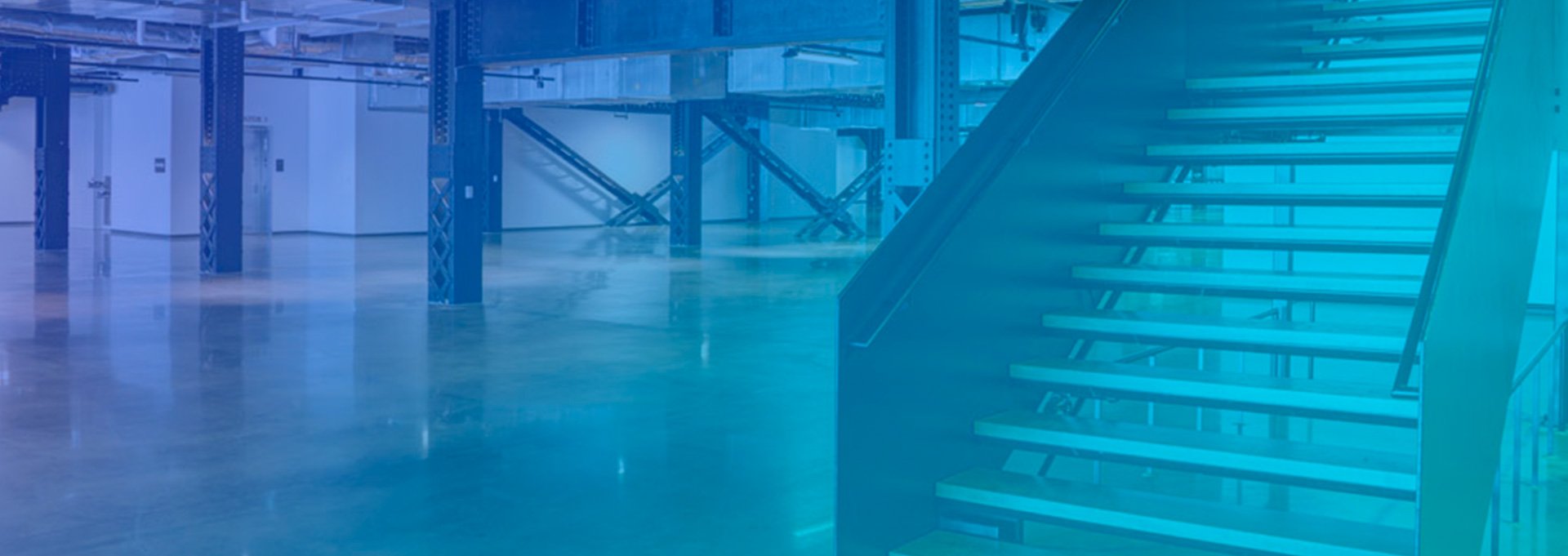Innovative and economical flooring options
What is Polished Concrete?
Polished concrete is a mechanical grinding & polishing process that utilizes industrial diamonds & impregnating hardeners and sealers to level, densify, polish & finally seal the floor from within the interior of the floor surface.
Polished concrete is one of the most innovative and economical flooring options available today, and its popularity is leading the flooring market in warehouse, retail, and decorative facilities across the nation. From showrooms to industrial plants, government buildings to retail facilities, polished concrete is quickly becoming one of the fastest growing, most versatile flooring solutions in the industry.
There is nothing more powerful than seeing the transformation of polished concrete in person, which is why we offer mobilized demonstrations to show you what it can do for your facility. Just pick out your worst, highest traffic area and prepare to be amazed.
Why Choose Polished Concrete?
Elimination of Dusting
In ordinary unpolished concrete, tiny particles of dust are pushed to the surface through an upward force called dusting. Dusting forces epoxies off of the surface of concrete floors, and can make maintenance a costly priority.
Reduced Lighting Load
Reflectance increase up to 35%, this is reflected light not just the appearance of light from a lighter colored coating. The end result is fewer light fixtures to purchase or maintain while attain the same amount of lighting.
Mark-Free Surface
Elimination of tire marks from fork trucks, vehicles and industrial type hoppers and parts baskets. In other floor systems, a tire mark is usually there to stay until the floor is repaired. On a polished concrete floor these marks come off easily through the regular maintenance cleaning or sweeping.
Ease of Floor Maintenance
Decrease in floor maintenance and less drag on cleaning equipment making brushes, pads and mops last longer.Most floor systems, even ordinary concrete floors, require aggressive scrubbing in order to maintain a clean environment and nice appearance. Oil, paint, and other staining spills can leave lasting impressions on most surfaces.A polished concrete floor system doesn’t require this intense scrubbing — the surface is so tightly compacted that it actually repels oils and other substances. This makes cleaning much easier and a maintenance schedule less demanding than with other floors. A polished concrete floor system eliminates the need to wax or strip the floor.
Safety
Higher levels of co-efficient of friction than any coating on the market. Wet or dry, our polished concrete floor surfaces meet, and most often exceed, OSHA standards (ASTM F 609). The National Floor Safety Institute has certified polished concrete meet standards for a “high-traction” floor rating. A >.60 (wet) static coefficient of friction, high traction skid resistance (NFSI 1010-A) When a concrete floor is polished, it may look like glass, however, its friction co-efficient is higher than ordinary concrete. Simply put, it is much harder to slip on a polished concrete floor, wet or dry.
Increased Strength
Old, deteriorating, weak concrete finishes are revitalized with more abrasion resistance (ASTM C779) and an increase in impact resistance (ASTM C805-97). There are dozens of ways for concrete floors to break as they age: rain damage, surface stress, delamination, improper curing, curled cold joints, joint shoulder failure…the list goes on. The polishing process actually removes the top part of the surface of the old concrete floor (including any patchy, partial, or whole coatings), and hardens the exposed surface beneath delivering a smooth, durable floor.
Decreased Equipment Maintenance
Decrease in overall fork truck tire wear and tear (due to the smoothness of the floor and the leveled “curling” joints).In heavy industrial facilities, rough and uneven surfaces cause tires to wear out rather quickly. Most concrete floors have small “curling” joints, from where the concrete bows upward on the edges during concrete curing. Polishing of these areas will level the joints and make the entire surface smooth, making tires last much longer and eliminating the jarring and noise from traversing joints.

